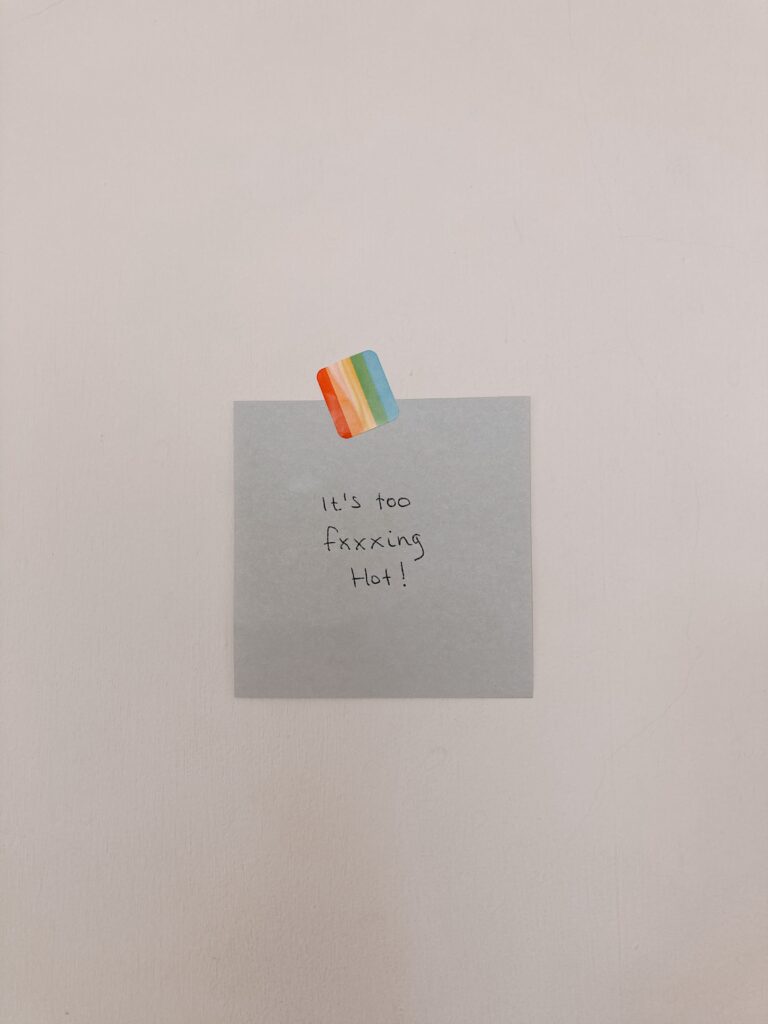During one of my evening strolls, passing by a group of twenty-year-olds, I overhear their conversation. Like every person coming of age, their discussions were narcissistic, redundant, and ignorant. What troubles me more than the limited periscope of their understanding was the undignified use of language.

Is it just me, or has the use of facile and at times foul language significantly increased over the past few years? I am no one to judge someone by their preferred language and vocabulary, but it renders the spectrum of communication mundane, menial, and superficial.
It is our capacity to share thoughts and ideas that essentially put us at the top of the evolutionary system. The ability to communicate with each other and express our thoughts and emotions is what makes us human.
Ideas bring change.
I am no exception to using foul or painfully simple language. Having had my fair share of its use and abuse, I never let it become my default state of being. Maybe it is the deeper connotation than just the relative morality of words that ushers me. The figures we choose to use have a significant impact on how we communicate and how we are perceived by others.
It is not about some self inflated idea of an illuminated self but the clarity of the thought exchange.
Enter “generation-amazing”
Consider the word amazing. Oxford Dictionary defines it as “causing great surprise or wonder.” The word “amazing” means a state of extraordinary wonder and something that is astonishing. But this word has lost all splendour due to its blatant, thought-less and extensive overuse.
“How was the food?” “Amazing!”
“How was the movie?” “Amazing!”
“I had an amazing night!” “It was an amazing game,” etc.
Are you sure? Maybe it was just fine, or okay, or astonishing, or astounding, or surprising, or bewildering, or stunning, or staggering, or shocking, or startling, or stupefying, or breathtaking, or perplexing, or confounding, or maybe even disappointing?

This simplification of feelings compromises the integrity of the nuance of the emotion. Maybe it isn’t love, but infatuation.
Everything you say should be true, but not everything true should be said.
Voltaire
We seldom wait to think of an apt description of an emotion; we rush to speak. In a world full of talkers, every inch of attention is glamorous. We jump to speak, and in this pursuit to say more, clarity of thought has lost its appeal. It is all a huge romantic elegance that we’ve become victims of.
The group abusing someone’s mother and their usage of genitals is not an exception. This trivial ritual finds its way into casual meet-ups, hang outs at the bar and those occasional roasts of the unfortunate friend who spilled a little wine over his satin blue-tinted ivory shirt. And it is fine, sometimes it does bring people together. When there is no intention, and it is done to ease the obvious awkward absurdity of human connection.
However, everywhere I go, I find people talking foul, using vulgar imageries about genitals, the f-words, and their mothers and sisters. Interestingly enough, it is a creative entourage of foul language.
While shopping for groceries, or a casual evening stroll in a public park, or standing in a queue at the bank, in the traffic, at a hostel, in a bus, at a bus stand, railway station, cusses and curses are way too frequent; with no regard to family, or hierarchy, or kids, or elders.

It is a personal bias when I say that I don’t prefer using such language. There is no judgment intended towards people who use it. In fact, those who swear a lot are usually the nicest, kindest, and warmest of all. What concerns me more is the superficiality of human connection it leaves us with.
If we only stopped to think and analyse what we truly wanted to say, gave ourselves a little more room to prune and find an exact explanation of the feeling, rather than succumbing to filling in adjectives of the foul and obvious kind as placeholders, it would be a very different world than it is now.
Watch your language!
This is neither intimidation nor spoken from a pseudo-high moral ground. It is just a thought I would like to share as a fellow human being. Think before you speak. Watch your words. Extrapolate the exact word for what you are truly feeling. Don’t jump. Take your time, and people who are interested in listening to what you have to say will wait.
Language is a powerful tool that can either bring people closer or push them away. The words we use have a significant impact on how we communicate and how we are perceived by others. Using foul language and easy obvious slang may seem like an easy way to communicate our thoughts and emotions, but it compromises the nuance of our emotions and leaves us with a superficial connection with others. We should strive to use words that best describe what we are feeling and take our time to express them.
For a change, let’s watch our language. And think before we speak.
Leave a Reply